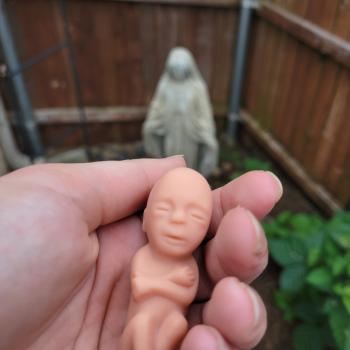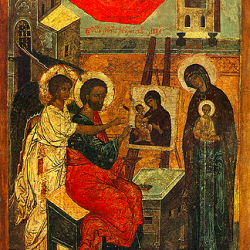There can be little doubt that Joseph does all of this for revenge against the brothers who wanted him dead. Of course, it also drives them to confess their guilt, but one cannot deny that revenge is the primary motive. Well, who can blame him? Being tossed into a well and screaming for help to no avail, hearing the brothers break out a picnic, would drive a man to revenge, would it not? So, does Joseph's claim about God right after his revelation sweep away these acts of revenge? I do not think so.
The second issue of the reading that I have has to do with the reactions of the brothers to Joseph's revelation of himself. If one reads that revelation with care, there is far too much of how grand and glorious Joseph has become and far too little about what his brothers are now thinking of him. Weeping and revelation are dramatic acts, but the fact that his brothers say exactly nothing to him until the very end of the scene (Gen. 45:15), and even there we are not told what they say, suggests that the revelation has not at all made things all right. And that fact is made doubly certain by what happens at the very end of the book of Genesis.
Jacob has died, and the brothers are charged with the responsibility of burying him back in the land of Canaan in the cave of Machpelah, a plot of land bought long ago by Abraham from a Hittite named Ephron. After the brothers discharge this sad duty, they all return to Egypt. Immediately, Joseph's brothers are afraid. "What if Joseph still bears a grudge against us and pays us in full for all the wrong we did to him?" (Gen.
Thus, we are lead back to Jesus. "Love your enemies" is not at all impractical, though it is hard. It is rather the practical road to genuine community. Yes, revenge is sweet, but like all sweet things it is, in the end, not very good for you. Choose love instead, and tell Joseph to try that, too.





